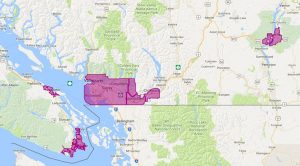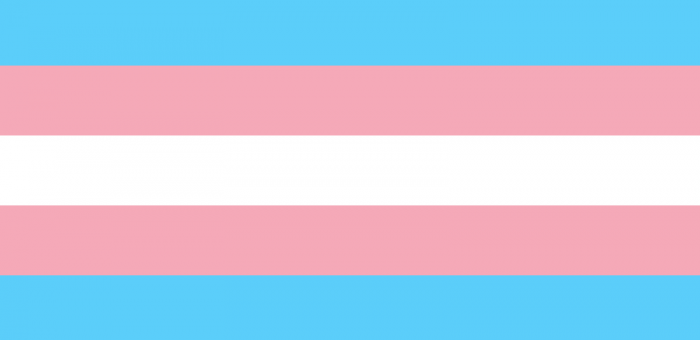Legislation
Responding to the Changes in the Government’s Speculation Tax
Earlier this month I was very critical, of the government’s ill thought through attempts to curb speculation in the housing market. In fact, I was entirely unsure as to what outcomes the government was seeking with the introduction of their so-called “speculation tax”. To the government’s credit, the Minister of Finance declared that she was willing to listen to British Columbians and make adjustments to her proposed policies. This was the opening that we were looking for.
 Over the last few weeks we worked hard to solicit, listen to, and respond to the concerns of British Columbians about this tax. We brought these concerns directly to the table with the NDP and worked closely with them to identify and offer solutions to many of the unforeseen consequences that had arisen. In particular,
Over the last few weeks we worked hard to solicit, listen to, and respond to the concerns of British Columbians about this tax. We brought these concerns directly to the table with the NDP and worked closely with them to identify and offer solutions to many of the unforeseen consequences that had arisen. In particular,
- We wanted to ensure the tax did not unfairly impact British Columbians, including people with vacation homes, who are not speculating in our market.
- We wanted to ensure the tax did not apply to rural or vacation areas, where there are many part-time residents and they are significant to the local economy.
- We wanted to ensure that this tax truly targets speculators – people who park their money in our real estate market as if it’s the stock market – and that it effectively deals with satellite families and offshore money.
- We wanted to ensure adequate flexibility for rentals, allowing people to avoid the tax by renting their home out part of the year, and stay there the other part of the year.
- We wanted to ensure that people who can’t rent their place out, through restrictive zoning or strata bylaws, aren’t hit with the tax.
- We wanted to ensure that the tax actually reduces speculation, and does not provide a revenue windfall for government.
Yesterday Carole James, the Minister of Finance, announced revisions to the proposed speculation tax that will be introduced this fall. While the BC Greens would have taken much more aggressive action focused largely on foreign capital through a New Zealand style offshore buyers ban, as well as targetting speculation through a flipping tax and closing the bare trust loophole on residential sales, the government’s proposed changes go a long way to dealing with a number of concerns with the tax.
Below I reproduce the Media Statement that we released in response to the proposed government changes.
Media Release
B.C. Green Caucus responds to government’s speculation tax changes
For immediate release
March 26, 2018
VICTORIA, B.C. – Andrew Weaver, leader of the B.C. Green Party, issued the following statement in response to the government’s announced changes to the speculation tax.
“It’s a positive sign that this government is willing to listen to British Columbians and to make adjustments to policies,” said Weaver.
“In a minority government, we have an opportunity to do things differently by collaborating to improve public policy. We worked hard to champion British Columbians’ concerns and bring forth evidence-based solutions to this policy’s shortcomings. We agree with the B.C. NDP that we need to take action to address speculation in our real estate market. However, we have been clear that we needed to see changes to this tax in order to support the forthcoming legislation. In particular, the government’s policy must target speculation and empty homes in our urban centres without undue adverse effects on rural areas and on British Columbians who aren’t speculators.
“These changes go a long way to dealing with our initial concerns with the tax – they make it much more targeted and limit the effects on British Columbians with vacation homes. We look forward to the full details of the legislation to ensure it truly limits unintended consequences. We will continue to advocate for bolder policies to address speculation, including a flipping tax, the closing of the bare trust loophole and a New Zealand-style ban on foreign capital.”
Adam Olsen, MLA for Saanich North and the Islands added that he was pleased that many of his constituents’ concerns were addressed.
“I heard from many concerned Gulf Islanders who were worried about how the speculation tax might impact them and we kept pressure on the government to address these issues,” said Olsen.
“I’m glad that the government has recognized that this tax doesn’t make sense for rural areas like the Gulf Islands. The diversity of concerns in my riding demonstrates the need for a nuanced approach to the housing crisis. We have serious housing challenges in the Gulf Islands that need to be addressed, while recognizing that seasonal residents are valuable members of the community who contribute to the local economy. I will continue to work closely with the communities in my riding to bring locally-appropriate solutions to the table.”
-30-
Media contact
Jillian Oliver, Press Secretary
+1 778-650-0597 | jillian.oliver@leg.bc.ca
Responding to the BC government’s new regulatory framework for LNG
The BC government today outlined its proposed regulatory framework for LNG proponents such as LNG Canada. In particular, the BC government sent a letter on Monday to Mr. Andy Calitz, CEO of LNG Canada, providing specific details. While the BC Green Caucus has not seen a copy of the letter that the BC Government sent, we were consulted on the government’s high level policy objectives as outlined in their media briefing and release today.
Given that the BC Green caucus believes in the importance of giving industry certainty as to our positions and intentions, we also sent Mr. Calitz a letter that is reproduced in text form below. In our letter we are very clear that:
- The B.C. Green Caucus does not, and will not, support exempting new LNG companies from carbon tax increases as this defeats the purpose of the carbon pricing.
- Extending the carbon tax to fugitive emissions is a core component of our confidence and supply agreement with the BC NDP.
- The confidence and supply agreement requires government to implement a climate action strategy to meet B.C.’s legislated emissions reduction targets of not less than 40% below 2007 levels by 2030 and 80% below 2007 level by 2050
Our firm position is that it is incumbent upon government to assess the LNG Canada project through the lens of meeting these greenhouse gas reduction targets and specifically identify a pathway to meet them. This should be done in a manner that protects existing industries that provide jobs and economic activity that British Columbians rely on.
As it stands, and despite being in office for 8 months, the BC Government still has not identified any concrete measures to reduce greenhouse gas emissions. As I pointed out in February, it is not possible to on the one hand claim you have a plan to meet our targets and then on the other hand start promoting the expansion of LNG.
As noted in the essay I wrote, in 2016, British Columbia actually lost $383 million from exploration and development of our resource. That’s because the tax credits earned exceeded the sum of the income received from net royalties and rights tenders combined. In the fiscal year ending March 31, 2017, British Columbia earned total revenue of only $3.7 million, a 99.9% drop from 2010 (BC earned 1000 times more revenue in 2010 from natural gas than we did in the last fiscal year).
It makes no sense to continue the generational sellout and further extend the government handout to a hypothetical LNG industry by offering ratepayer-subsidized electricity (read Site C) of 5.4 ¢/kWh (less than half what you or I pay and less than half of what it will cost to produce the electricity from Site C). It makes no sense to exempt LNG companies from being required to use electric drives for compression of natural gas to achieve this discounted electricity rate.
And in addition, expectations are that the federal government would further exempt LNG Canada from tariffs on fabricated steel imports. This would ensure that most of the infrastructure would be built in Asia and shipped to BC. At the same time, the BC Government will exempt LNG proponents from the Provincial Sales Tax (PST) for construction. So much for the multi-billion dollar investment, revenue and job creator for British Columbia.
Finally, it remains to be seen if LNG demand will increase in light of the fact that Japan, the world’s largest LNG importer, is restarting nuclear reactors that were shutdown following the Fukushima incident. In fact, just this week a major Japanese electric power company is putting its LNG contracts up for sale.
In the ongoing saga of British Columbia’s desperate attempt to land a positive final investment decision from a major LNG proponent, the generational sellout continues. In a typical race-for-the-bottom fashion, the BC NDP are proposing still further subsidies to LNG proponents.
While I appreciate the Premier’s commitment to putting in place a plan to reduce emissions to 40% below 2007 levels by 2030 and 80% below 2007 levels by 2050 and to put a price on fugitive emissions, I cannot see how this is possible if the LNG Canada proposal goes ahead. It would require every aspect of our BC economy (except LNG Canada) to collectively cut emissions by more than half in twelve years and by 95% by 2050.
As outlined in our media release below, there are significant opportunities to grow B.C.’s economy while meeting our climate targets that do not include LNG. For instance, the supercluster funding announced last month is expected to generate 50,000 jobs and $15 billion in economic activity in B.C. in the next 10 years.
In summary, the BC Green Caucus will not support any legislation brought forward to grant the exemptions outlined above.
Media Release
B.C. Green Caucus releases letter to LNG Canada clarifying position on government’s LNG approach
For immediate release
March 22, 2018
VICTORIA, B.C. – The B.C. Green Caucus released a letter sent to LNG Canada clarifying the Caucus’ position on the government’s proposed LNG regulations. The letter, sent on Monday March 19, came after the Caucus was was made aware of the the details of the government’s proposed LNG regime. The letter is intended to give industry maximum clarity, as the minority government requires the B.C. Green Caucus’ votes for general stability and to pass legislation.
“There are significant opportunities to grow B.C.’s economy while meeting our climate targets,” said Andrew Weaver, leader of the B.C. Green Party. “For instance, the supercluster funding announced last month is expected to generate 50,000 jobs and $15 billion in economic activity in B.C. in the next 10 years. Future development must fit within our climate targets, and the numbers on LNG simply don’t add up.”
The B.C. Green Caucus does not support extending the proposed measures to support existing Emissions Intensive Trade Exposed (EITE) industries as currently conceived to prospective LNG companies – a policy that would in effect freeze the carbon tax at $30/tonne for certain facilities. CASA commits government to extend the carbon tax to fugitive emissions, and the Caucus expects that this will include the natural gas industry. Further, the Caucus is concerned that increasing B.C.’s emissions through LNG developments will place an undue burden on existing industries and the public to reduce their emissions beyond what is already required.
“Not only is a plan to meet our climate commitments a core component of our Confidence and Supply Agreement (CASA) which forms the stability of this government, it is essential for ensuring we do not betray our duty to future generations.” Weaver continued. “When it became clear that the government intended to propose measures that are incompatible with B.C.’s ability to meet our climate targets, we felt it was our responsibility to communicate to LNG Canada that if these measures were to go ahead unamended, we would no longer have confidence in government.
“To be clear – our Caucus is fully committed to working in partnership with the B.C. NDP government to enact a plan to meet our climate targets and in attracting the investments we need to build a 21st century economy. We will continue to hold this government to account on all its promises, including our responsibility to the next generation and our international commitments to act on climate change.”
-30-
Media contact
Jillian Oliver, Press Secretary
+1 778-650-0597 | jillian.oliver@leg.bc.ca
Text of BC Green Caucus Letter
Mr. Andy Calitz
CEO, LNG Canada
March 16, 2018
Dear Mr. Calitz,
We are writing regarding your ongoing discussions with the Government of British Columbia on your proposed project, LNG Canada in Kitimat, B.C.
As you know, British Columbia currently has a minority government, where the votes of our three caucus members provide confidence in Premier Horgan’s NDP government. The basis of our confidence is the Confidence and Supply Agreement (“CASA”) signed May 30, 2017 which binds our two caucuses to act on the principle of “good faith and no surprises.” As such, the government must consult with our caucus on all matters, and it must uphold the agreed-upon policies and initiatives enshrined in it. Our caucus has been consulted on the letter sent from the government to LNG Canada. We are writing to let you know our position on the government’s proposal in order to provide you with the fullest possible scope of information.
First, extending the carbon tax to fugitive emissions is a core component of CASA. We have assurances from the government that this extension is forthcoming pending a determination of the necessary technologies and regulations to measure them. To be clear, it is our expectation that the carbon tax on fugitive emissions will be extended to all sources of these emissions. This will have impacts on a number of industries and future proposed projects, including yours.
Second, CASA requires government to implement a climate action strategy to meet B.C.’s legislated emissions reduction targets. Therefore, all future development must fit within our province’s commitment to the Pan-Canadian Climate framework to meet our emissions reduction targets, as well as soon to be legislated targets for British Columbia specifically. As such, it is incumbent upon government to assess your project through this lens and to specifically identify how it will accomplish the emission reductions required to meet our targets of not less than 40% below 2007 levels by 2030 and 80% below 2007 level by 2050. This must be done in a way that limits harm to other existing industries that provide jobs and economic activity that British Columbians rely on.
Finally, CASA commits government to implement an increase of the carbon tax by $5 per tonne per year beginning April 1, 2018. Our intention was to ensure that across the entire economy a clear market signal was sent that incentivized low GHG producing activity, as well as spurred innovation and investment in the new economy. We were made aware over the course of our consultations with government that the proposed measures to support Emissions Intensive Trade Exposed (EITE) industries would be extended to LNG as well. These measures would have the effect of rebating up to 100% of the carbon tax that was paid beyond the $30 per tonne, based on how the greenhouse gas production intensity compares to the global cleanest benchmark.
While our caucus is supportive of these measures for the many existing industries in B.C. that already provide jobs and economic activity for our province – many of whom made their investment decisions in a previous regulatory environment – our caucus does not support extending the EITE as currently conceived to a proposed LNG industry.
If such a measure goes forward without amendment we do not see how a climate action plan, as agreed to in CASA, would have any legitimate pathway forward to reach our GHG reduction targets. As such, our caucus would no longer have confidence in government, as they would not be living up to their commitments laid out in CASA.
We believe that British Columbia must make its GHG reduction targets and climate action plan the centerpiece of its economic strategy. Our focus must be on prioritizing innovation within our economy and seeing new investments that ensure we are leaving the next generation with real opportunities to prosper. We are deeply encouraged that the companies engaged in your joint venture are investing heavily in renewable energy and other clean technologies. B.C. has a highly educated workforce, world-class research institutions and a wide range of innovative companies. We would welcome the opportunity to work with you in a manner that builds on these opportunities while helping us meet B.C.’s GHG reduction targets, as committed to under the Paris Climate Accord.
We would be happy to discuss our position in detail with you.
Sincerely,
Andrew Weaver
MLA, Oak Bay Gordon Head and Leader, B.C. Green Party
Sonia Furstenau
MLA, Cowichan Valley and Deputy Leader, B.C. Green Party
Adam Olsen,
MLA, Saanich North and the Islands
Introducing two bills to protect gender identity and expression privacy rights
Yesterday in the legislature I had the pleasure of introducing five remarkable youth: Megan Walker, Grayson Threlfall, Astrid Nielson-Miller, Alex Bradley and Avery Williams. They, together with 20 other British Columbia youth, are working with Dr. Lindsay Harriet at the University of Victoria on writing a book about what it’s like to grow up as a transgender person in 2018. Their project is called The Transgender Tipping Point.
 But their good work goes far beyond the book that they are writing. A few weeks ago I met with youth working on this project. One of them raised the important notion that two key bills, the Freedom of Information and Protection of Privacy Act and the Personal Information Protection Act did not protect gender identity and expression or contained gendered language that did not instill confidence in the transgender community concerning the interpretation of the act.
But their good work goes far beyond the book that they are writing. A few weeks ago I met with youth working on this project. One of them raised the important notion that two key bills, the Freedom of Information and Protection of Privacy Act and the Personal Information Protection Act did not protect gender identity and expression or contained gendered language that did not instill confidence in the transgender community concerning the interpretation of the act.
I agreed and so worked with them, together with a legislative intern Kayla Phillips, to draft amendments to these bills. Today I introduced both the Freedom of Information and Protection of Privacy Amendment Act, 2018 and the Personal Information Protection Amendment Act, 2018.
Below I reproduce the video and text of the introductions as well as our accompanying press release. I look forward to work with my colleague Spencer Chandra Hebert in the BC NDP to see if we cant get these bills passed in a timely fashion.
Video of Bill Introductions
Text of Bill Introductions
BILL M208 — FREEDOM OF INFORMATION AND PROTECTION OF PRIVACY AMENDMENT ACT, 2018
A. Weaver: I move that a bill intituled the Freedom of Information and Protection of Privacy Amendment Act, 2018, of which notice has been given in my name on the order paper, be introduced and read a first time now.
The right to privacy is well established in British Columbia, as is the right to be free from discrimination because of gender identity and expression. Under the Freedom of Information and Protection of Privacy Act, however, gender identity and expression is not recognized as a category of personal information that must be protected when its disclosure may harm a third party.
In addition to proposed changes to ensure the protection of gender identity and expression in freedom-of-information releases, the bill also proposes a move to gender-inclusive language. This would demonstrate a commitment to protect the personal information of gender identity and expression in the legislation to an even larger extent and provide the act with an update making it more representative of the people it is meant to protect.
I wish to recognize the young members in the gallery today, who have been quite instrumental in bringing this to my attention, as well as the good work done by the member for Vancouver–West End, whose championing of this in the Legislature over many years has also informed me and others as to the importance of acts like these.
Mr. Speaker: The question is first reading of the bill.
Motion approved.
A. Weaver: I move that the bill be placed on the orders of the day for second reading at the next sitting of the House after today.
Bill M208, Freedom of Information and Protection of Privacy Amendment Act, 2018, introduced, read a first time and ordered to be placed on orders of the day for second reading at the next sitting of the House after today.
BILL M209 — PERSONAL INFORMATION PROTECTION AMENDMENT ACT, 2018
A. Weaver: I move that a bill intituled the Personal Information Protection Amendment Act, 2018, of which notice has been given in my name on the order paper, be introduced and read a first time now.
The protection of people’s private and personal information is essential, especially when the information could have negative impacts or when its release was not consented to. Too often, personal information regarding gender identity or expression is revealed.
This amendment would replace 16 instances of gendered language throughout the act with gender-neutral language. By explicitly making a point of doing this, it reinforces to those who may rely on the act that gender identity and expression is important personal information that should not be revealed without that party’s consent. This bill will build trust between those who wish to keep their gender identity and expression private and those they seek guidance from concerning personal and confidential issues.
I would like to thank for this, as well, the youth in the gallery above, for bringing this to my attention, and once more to the member for Vancouver–West End, who was an advocate for language and issues like this over the years and has also made this an important topic of discussion in the Legislature.
Mr. Speaker: The question is first reading of the bill.
Motion approved.
A. Weaver: I move that the bill be placed on the orders of the day for second reading at the next sitting of the House after today.
Bill M209, Personal Information Protection Amendment Act, 2018, introduced, read a first time and ordered to be placed on orders of the day for second reading at the next sitting of the House after today.
Media Release
March 15, 2018
Weaver introduced private members bills to protect and acknowledge diverse gender identities
For immediate release
VICTORIA, B.C. – Andrew Weaver, leader of the B.C. Green Party, introduced two private members bills to that would further the rights of British Columbians with diverse gender identity and expression. The bills are amendments to the Freedom of Information and Protection of Privacy Amendment Act (FIPPA) and the Personal Information Protection Amendment Act (PIPA).
“Personal information such as sexual orientation, race, ethnicity and religious affiliation is already protected under FIPPA, in 2018 we should absolutely include gender identity and expression,” said Weaver.
“People with diverse gender identity and expression still face discrimination and far too often violence. It is essential that this information be protected to ensure it is not be released without their consent.”
Weaver was made aware of the need for these changes after meeting with local trans youth from The Trans Tipping Point Project, a UVic initiative organized by Dr. Lindsay Herriot and Kate Fry, with young trans people from across Canada.
“It was an amazing feeling to speak truth to power, and to be heard and listened to, and then have something done about it. I am incredibly thankful for the opportunity, and to everyone who supported us in making this happen,” said Avery Williams, one of the Trans Tipping Point Project youth.
The amendment to FIPPA would ensure that information regarding an individual’s gender identity and expression cannot be revealed by the head of a public body, and that it must be redacted in Freedom of Information Requests. The amendment to PIPA would replace instances of gendered language (he and she) with gender neutral language, reinforcing the principle that gender identity is important and is personal information that should not be revealed without consent.
-30-
Media contact
Jillian Oliver, Press Secretary
+1 778-650-0597 | jillian.oliver@leg.bc.ca
Bill M210 — Family Day Amendment Act, 2018
On February 9, the BC government announced that in 2019, Family Day would move from the second to the third Monday in February. In fact, I had earlier introduced a Private Member’s Bill in 2017 to do just this and so the BC Green caucus was thrilled that the BC NDP supported this BC Green initiative.
But such an announcement needs to be coupled with either a legislative or regulatory change. In light of the fact that it is now over a month since the announcement was made and that the act had yet to be changed either way, I felt it was important to reintroduce the bill to remind government of its commitment. As such yesterday I introduced, for the second time, the Family Day Amendment Act.
Below are the video and text of the bill’s introduction.
Video of Bill Introduction
Text of Bill Introduction
A. Weaver: I move that a bill intituled the Family Day Amendment Act, 2018, of which notice has been given in my name, be introduced and read a first time now.
This is the second time that I’m introducing this bill, which, if enacted, would amend the Family Day Act to prescribe that the third Monday in February each year is observed as Family Day. This amendment would align the date of B.C.’s Family Day with family days and other public holidays across the rest of Canada and in the United States.
The purpose of Family Day is to highlight the importance of family and bring families together, not cater to corporate lobbyists in the ski industry. In B.C., we observe Family Day a week earlier than all other provinces. Families spread out beyond B.C. aren’t able to be together. Federal employees and many who work in business are forced to work Family Day, since it is a business day everywhere else.
On February 9, the Premier announced that beginning 2019, Family Day would shift as outlined in this bill. Unfortunately, that cannot occur without a change in legislation. To assist government, I’m bringing forward this bill in the hope that the ball is not dropped. I would have brought this forward earlier had I realized we had such a light legislative agenda this session.
Mr. Speaker: The question is first reading of the bill.
Motion approved.
A. Weaver: I move that the bill be placed on the orders of the day for second reading at the next sitting of the House after today.
Bill M210, Family Day Amendment Act, 2018, introduced, read a first time and ordered to be placed on orders of the day for second reading at the next sitting of the House after today.
Reintroducing a bill to lower the voter age in British Columbia to 16
Today in the BC Legislature I reintroduced a bill that would lower the voter age in British Columbia to 16. This is the third time I’ve introduced this bill. I’ve provided a detailed rationale for it here, here and here, and expanded upon it further in a Vancouver Sun article that was published today.
Below I reproduce the video and text of my introduction of the bill, as well as the media statement that we released.
Video of Introduction
Text of Introduction
A. Weaver: It gives me great pleasure to introduce a bill that, if enacted, would lower the voting age to 16 in British Columbia.
The voting age in British Columbia was not always 18. Federally, it wasn’t until 1970 that the Canada Elections Act was amended to drop the voting age from 21 to 18. In British Columbia we made the jump in two steps. First, in 1952 we dropped the voting age from 21 to 19, but it wasn’t until 1992 that we made the subsequent change to lower the age to 18.
Around the world, more and more jurisdictions are openly discussing the notion of dropping the voting age to 16, and, in fact, a growing number have actually done so. Austria, Argentina, Brazil, Germany and Scotland are but a few of the jurisdictions that have extended voting rights to 16-year-olds.
There’s ample evidence to suggest that the earlier in life a voter casts their first ballot, the more likely they are to develop voting as a habit throughout their lifetime.
Sadly, in the 2017 election, only 56 percent of youth aged 18-24 and only 46 percent of young adults aged 25-34 voted here in British Columbia. Compare that to the provincial average of 61 percent and to the 75 percent of seniors aged 65-74 who voted.
It’s also a common misconception that 16-years-old are not as informed and engaged in political issues as older voters. The research, however, says otherwise.
Sixteen- and 17-year-olds are old enough to drive, pay taxes, get married and sign up for the military. They should have a say in the direction our province is heading as they ultimately inherit what we leave behind.
Mr. Speaker: The question is first reading of the bill.
Motion approved.
A. Weaver: I move that the bill be placed on the orders of the day for second reading at the next sitting of the House after today.
Bill M205, Election Amendment Act, 2018, introduced, read a first time and ordered to be placed on orders of the day for second reading at the next sitting of the House after today.
Media Release
Weaver re-introduces bill to extend voting rights to 16 and 17-year olds
For immediate release
March 13, 2018
VICTORIA, B.C. – Andrew Weaver, leader of the B.C. Green Party, introduced a Private Member’s bill to lower the voting age to 16 in B.C. This is the third time Weaver has introduced the bill.
“Young British Columbians have the greatest stake in the future of our province; they should have a say in the decisions our politicians make,” said Weaver.
“Yesterday, Elections B.C. announced that only 56.24% of 18-24 year olds and 46.35% of 25-35 year olds voted in our last provincial election. Voting rights have been extended to 16 year-olds in Scotland, Argentina, Austria and Brazil. Evidence from those jurisdictions shows that enfranchising these young voters has led to substantially higher levels of political participation.
“Moreover, research shows that the cognitive skills required to make calm, logically informed decisions are firmly in place by age 16. Young citizens of British Columbia are old enough to drive, pay taxes and sign up for the military. They are also the leaders of tomorrow. They should have a say in the direction we are heading, as they will inherit what we leave behind. B.C. should take this chance to strengthen our democracy and lower the voting age to 16.”
-30-
Media contact
Jillian Oliver, Press Secretary
+1 778-650-0597 | jillian.oliver@leg.bc.ca








